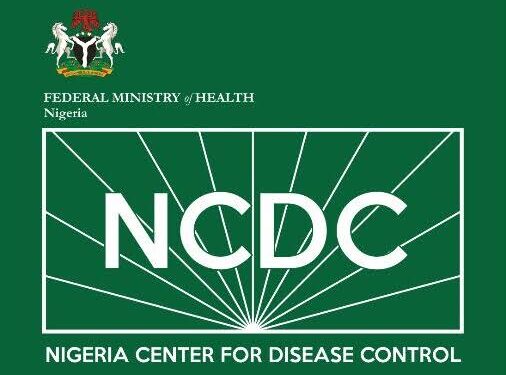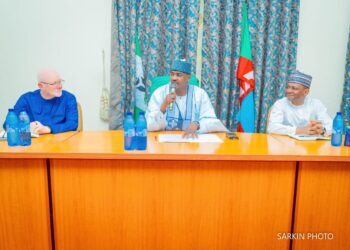The Nigeria Centre for Disease Control and Prevention (NCDC) on Tuesday said it is committed to safeguarding public health, following reports of a Human Metapneumovirus (HMPV) outbreak in China and other regions.
Director-General of the NCDC, Dr Jide Idris, said this in a statement in Abuja, emphasising the agency’s readiness to address potential threats.
The News Agency of Nigeria (NAN) reports that the HMPV outbreak has overwhelmed hospitals in China, sparking global concern.
Videos circulating on social media depict overcrowded waiting rooms and strained healthcare systems, raising alarm in parts of Asia and beyond.
Idris said that the NCDC was collaborating with the Federal Ministry of Health and Social Welfare to monitor global developments and take proactive measures to ensure that Nigeria remains prepared.
Dispelling public concern, he said that the World Health Organization (WHO) had not declared HMPV a Public Health Emergency of International Concern (PHEIC).
He said that Nigeria’s National Influenza Sentinel Surveillance (NISS) system had not detected any unusual increase in respiratory infections locally.
Although no cases of HMPV have been reported in Nigeria, Idris said that the NCDC had ramped up surveillance efforts nationwide.
The DG said that the agency had enhanced monitoring for respiratory infections, including HMPV, at sentinel sites across the country.
He also urged healthcare providers to report any unusual spikes in respiratory illnesses, while stressing the importance of preventive measures, such as regular handwashing, mask-wearing in crowded spaces, and staying home when unwell.
The WHO has acknowledged the rise in acute respiratory infections in China, particularly among children, as reported by China’s National Health Commission.
However, the UN Health Organisation as not released specific data on HMPV.
Health experts describe HMPV as a known virus with established immunity in the population.
While it can cause severe illness in vulnerable groups, it does not pose the same global threat as COVID-19.
Meanwhile, India’s Health Ministry held an emergency meeting to review the rising cases of HMPV, reassuring the public that there is no immediate cause for alarm.
Similarly, Malaysia has reported a notable increase in cases and is stepping up monitoring efforts.
China, on the other hand, has downplayed the outbreak, describing it as less severe than in previous years and attributing the rise in infections to the winter season.
Despite reassurances, concerns persist over China’s transparency, drawing comparisons to the initial handling of the COVID-19 outbreak in 2019.
An infectious disease expert from the Australian National University, Dr Sanjaya Senanayake, underscored the need for data sharing.
“It is vital for China to share its data on this outbreak in a timely manner.
“We need genomic data confirming that HMPV is the culprit and that there are no significant mutations of concern. Such data will also guide vaccine development,” Senanayake said.
In the United States, the Centers for Disease Control and Prevention (CDC) reported a rise in HMPV cases, with positive test rates doubling in December.
Nearly 300 cases were recorded in the last week of the month.
The USCDC, however, said that the outbreak in China was not a cause for concern, but confirmed ongoing monitoring of developments.
NAN recalls that HMPV, first identified in 2001, is part of the Pneumoviridae family, which also includes respiratory syncytial virus (RSV).
The virus causes upper and lower respiratory infections with symptoms similar to a cold or flu, such as coughing, fever, sore throat, and in severe cases, wheezing or difficult breathing.
The virus poses the highest risk to young children, the elderly, and people with weakened immune systems or chronic respiratory conditions like asthma or COPD.
HMPV spreads through respiratory droplets from coughing or sneezing, close contact such as handshakes, and touching contaminated surfaces before touching the face.
Meanwhile, The USCDC advised the public to adopt certain measures to reduce the risk of HMPV and other respiratory infections.
“Wash hands regularly with soap and water for at least 20 seconds.
Avoid touching the face with unwashed hands. Wear masks in crowded areas during outbreaks. Stay home when unwell to prevent spreading the virus,” it said.
The NCDC has joined international calls for transparency and collaboration to mitigate potential health threats posed by HMPV.
As global health agencies monitor developments, the emphasis remains on preventive measures and vigilance to protect vulnerable populations.
NAN reports that while HMPV is not a new virus, its potential to cause severe illness in at-risk groups underscores the importance of public health preparedness and international cooperation.(NAN)











